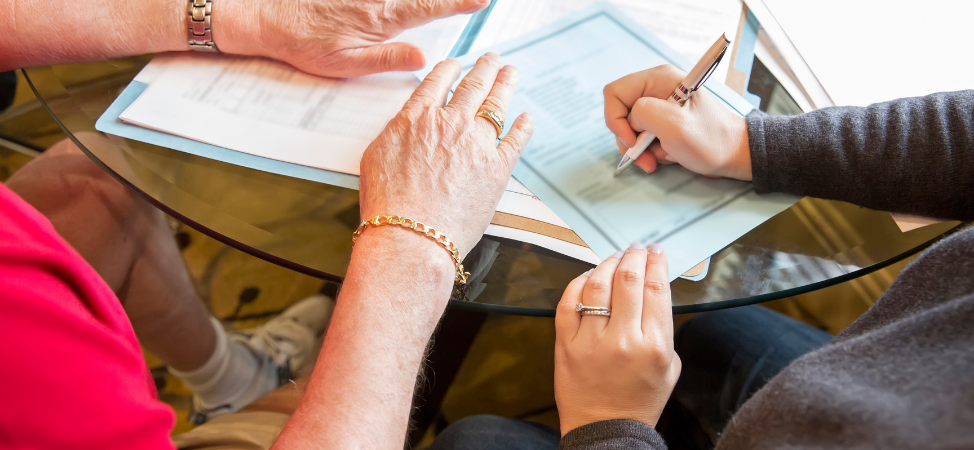A will is a legal document providing directions regarding the division of your assets or properties upon your passing. If you pass away without a will, then your assets will be distributed according to the “Intestacy Rules” or according to the “Succession Act”. Will making will provide you with control over how your assets will be distributed after your passing.
The onset of the COVID-19 pandemic along with the lockdown, social distancing and isolation restrictions created a dilemma for wills and estate lawyers. The longstanding strict requirement that a will maker should sign the will in the physical presence of two witnesses gave rise to practical obstacles to those who had to remain in isolation due to old age or compromised health.
Rules And Regulations
Regulation 2020 related to wills and enduring documents was amended under the COVID-19 Emergency Response Act 2020. An important feature of the Regulation is that under certain circumstances, it permits witnessing of wills by audio-visual links.
This dispenses the requirement of the physical presence of the witnesses and the will-maker. However, it does not change the requirement of two witnesses to sign the will. The Regulation requires at least one witness to be a special witness.
Special witnesses include a Justice of Peace or an Australian lawyer or commissioner for declarations, employed by the law practice that prepared the will. A notary public is required to witness the will in the course of the employment. An employee of the public trustee is retweeted for the wills prepared by the public trustee.
Regulation requirement for signing a will witnessed by audio-visual link:
- Audio-visual link facilitates continuous audio and visual communication between people from different locations and involves video conferencing.
- The witnesses are required to observe the signing and should be satisfied with the signatory signing the will.
- The witnesses are required to agree in real-time.
- Each page of the will must be signed by the signatory.
- The witnesses are required to be satisfied with the signatory voluntarily and freely signing the will.
- The witnesses are required to take steps to verify the identity of the signatory.
- The witnesses are required to verify the name of the signatory along with the name present in the will.
- Once the will is signed in front of the witnesses through the audio-visual link, the original signed document must be sent to them through post or courier. Or a scanned copy of the signed document can be sent through the mail.
- The special witness should then print the electronically sent document and sign each page.
- They should complete the special witness certificate and sign the accompanying document.
- And then forward it to the second witness to sign.
- The will must then be returned to the will-maker.
Practice Direction
Practice direction issued by the chief justice authorises the Registrar to grant probate to a will witnessed by the audio-visual link under the following circumstances.
- Due to the COVID-19 restrictions, the will-maker is unable to comply with the formal requirements that govern will execution.
- The will is witnessed by either one or two witnesses in the presence of the will-maker through an audio-video conference.
- A conveyancing solicitor is involved in the process either as a drafter of the will or being a witness to the signing of the will or supervising the execution of the will.
- The witnesses can identify the document as the will.
- The will-maker intends that the document takes immediate effect as his or her will.
Special Witness Certificate
A special witness certificate must be included with the will. And the certificate must state the following
- The will was signed and witnessed during a relevant period.
- The will was signed and witnessed according to the regulations.
- The steps taken by the witnesses to verify the identity of the signatory.
- The process followed in the signing and witnessing of the will.
- That the special witness satisfies the requirements of a special witness.
- Whether an audio-visual recording of the signing and witnessing of the will was made.
- Any other aspect that the special witness considers relevant to the signing and witnessing of the will.
General Observations
It is recommended that the permitted relaxations are applied with caution and are used only when it is necessary for the following reasons:
- The act of will execution under the Practice Direction and the Regulation is by necessity, more complex, and significantly involves more record preparation and record-keeping than the traditional process of will execution.
- The audio-visual conference might not adequately enable the special witness to assess the testamentary capacity or the absence of duress of the will maker.
- The process of later proving the will is likely to become costly and more complex.
As soon as the opportunity arises and there is no legal impediment to do so, it is recommended to re-execute the will according to the traditional process wherein the will maker and the two witnesses are in physical presence at the time of will execution.
Get Assistance
Wills and Estate lawyers in Brisbane can assist you and your family members to overcome any issues that you might have with will making or enduring power of attorney during the COVID-19 pandemic.
Trusting a reputed lawyer will help you have a hassle-free will-making process. While choosing a solicitor to help plan your will making, you will need a trusted advisor who is reliable, honest, understanding and has in-depth knowledge about things.
Fit Lawyers is one such reputed law firm that will help you in effectively dealing with any legal procedures or issues. Their team of certified lawyers offer affordable law services in and around Brisbane.
Call them on 0415 835733 or write to them at fitlawyers.au@gmail.com to know more about the will-making process and its legalities or to hire expert wills and estate lawyers in Brisbane.

